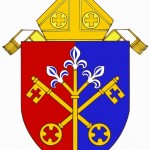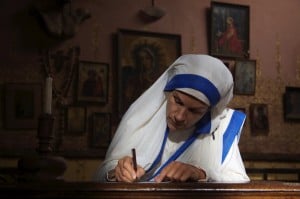 Catholics and Evangelicals: Have you noticed anything different about how we think of one another?
Catholics and Evangelicals: Have you noticed anything different about how we think of one another?
When I was a small child, I remember people sometimes speaking of believers from other denominations almost with a hush. It was as though they were “other”—woefully misguided, wrong-headed—and we we should not associate with them.
Vatican II did much to change that attitude. Unitatis Redintegratio, the Decree on Ecumenism, had the restoration of unity among all Christians as one of its principal concerns.
Pope John Paul II’s bold leadership in the realm of Christian ecumenism is broadly acknowledged; for example, the 1999 Joint Declaration on the Doctrine of Justification was approved during his papacy.
And Pope Benedict XVI, just one day after his election to the papacy, on April 19, 2005, called the cardinals together in the Sistine Chapel to outline his vision of the papacy and the priorities of his mission. He told the cardinals that fostering the unity of Christians would lie at the very pinnacle of his ministry. Speaking of himself in the third person, the Pope went on to say that:
Peter’s current Successor takes on as his primary task the duty to work tirelessly to rebuild the full and visible unity of all Christ’s followers. This is his ambition, his impelling duty.
So ecumenism is nothing new. It’s seemed to me, though—and perhaps you’ve felt the same thing—that there have been some bold new initiatives in this first year of Pope Francis’ papacy which push us farther along the road toward union with our Christian brothers and sisters.
Within the Anglican Communion, Archbishop Justin Welby has his roots in the ecumenical movement. As Archbishop of Canterbury, he has advanced the cause of unity: urging his fellow Anglicans to “go to confession, like the Catholics do”, and even inviting a Catholic and a Lutheran from the Catholic-founded ecumenical movement Chemin Neuf to live and pray with him at Lambeth Palace. Speaking to the World Council of Churches in November 2013, Archbishop Welby told them to “expect surprises” in terms of ecumenical relations between the Anglican Communion and the Roman Catholic Church. In an interview with Vatican Radio on the subject of ecumenical relations, he said,
“…in the context of churches and ecclesial communities…no sacrifice is too great to be obedient to the call of Christ that we may be one.”
That focus on the shared faith of Catholics and other Christians has been a recurrent theme in the Church.
In recent weeks, Pope Francis has continued to make headlines with his bold ecumenical outreach. He recorded a personal greeting to Kenneth Copeland and ministers from Pentecostal churches in America which was recorded by Anglican Bishop Tony Palmer. Palmer, in introducing the video, reminded the congregants gathered in Texas that with the 1999 Joint Statement on Justification, Martin Luther’s protest was over. “Is yours?” Palmer asked the hundreds of religious leaders.
Today, what was once unthinkable becomes almost commonplace: Where once we were deeply divided, there is this stirring, this striving for unity that seems to well up in the Christian community. In some measure, Jesus’ prayer to His Father is being answered: “That they may all be one, just as You and I are one…”
And now this morning in Rome, Pope Francis met with Rev. Olav Fykse Tveit, secretary general of the World Council for Churches, accompanied by a delegation. The Pope’s message to the World Council of Churches was dramatic: Take the path to full communion without fear.
Following, from the Vatican Information Service, is the text of that message:
The Pope remarked that this encounter “marks an important chapter in the long and fruitful relationship between the Catholic Church and the World Council of Churches”, and acknowledged “the service it performs in the cause of unity between believers in Christ”.
“Since its creation, the World Council of Churches has offered a great contribution to forming the sensibility of all Christians with regard to the fact that our divisions represent a major obstacle to our witness to the Gospel in the world. These divisions must not be accepted with resignation, as if they were simply an inevitable component of the historic experience of the Church. If Christians ignore the Lord’s call to unity, they risk ignoring the Lord Himself and the salvation He offers through His Body, the Church: ‘there is salvation in no one else, for there is no other name … by which we must be saved.’”
“The way to full and visible communion is a path which still proves today to be arduous and uphill. The Spirit, however, urges us not to be afraid, to go ahead with trust, and not to content ourselves with the progress that we have been able to experience in these decades. Prayer is fundamental on this path. Only in a spirit of humble and persistent prayer can we attain the necessary farsightedness, discernment and motivations for offering our service to the human family, in all its weakness and with all its needs, both spiritual and material”.











